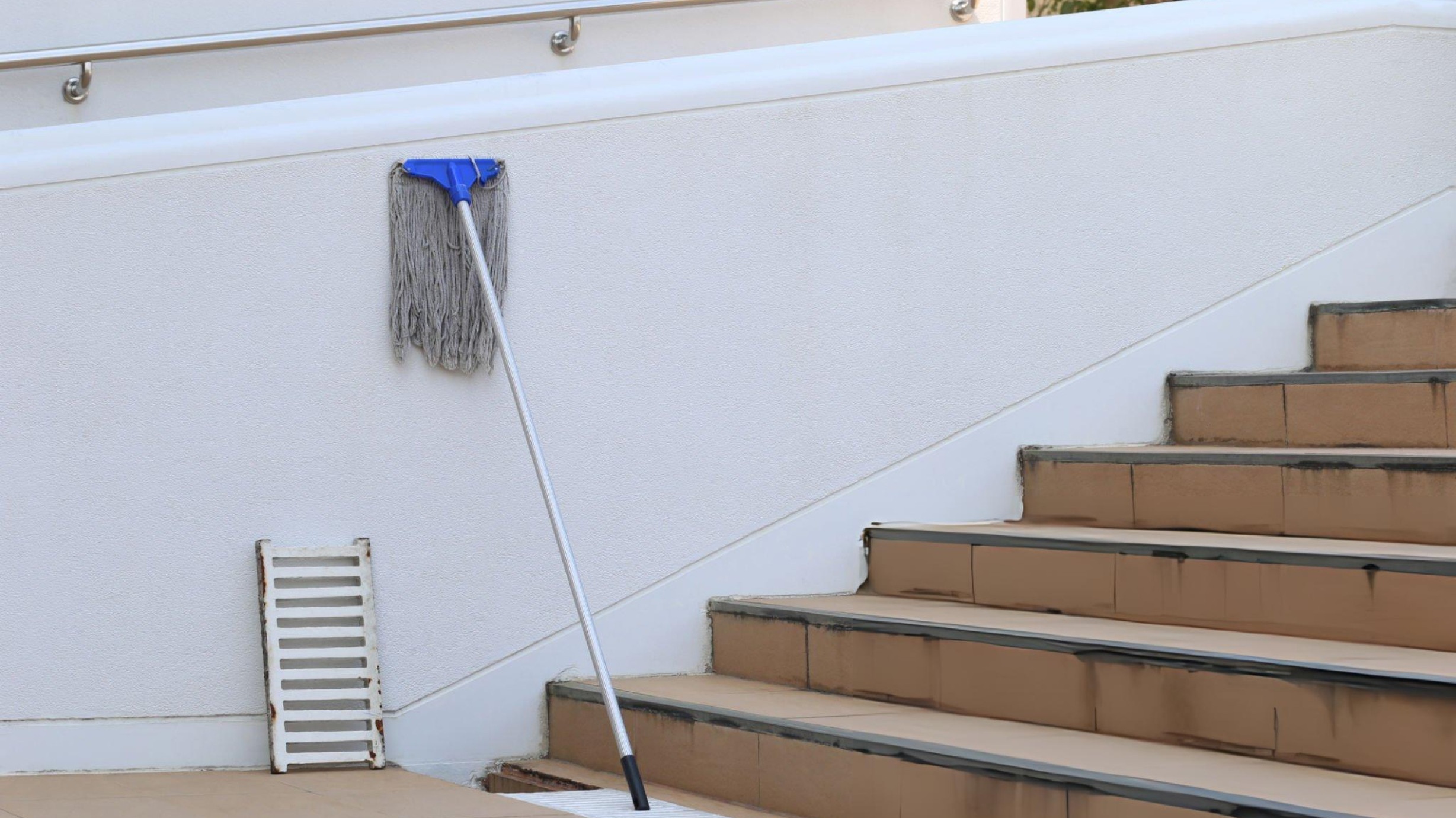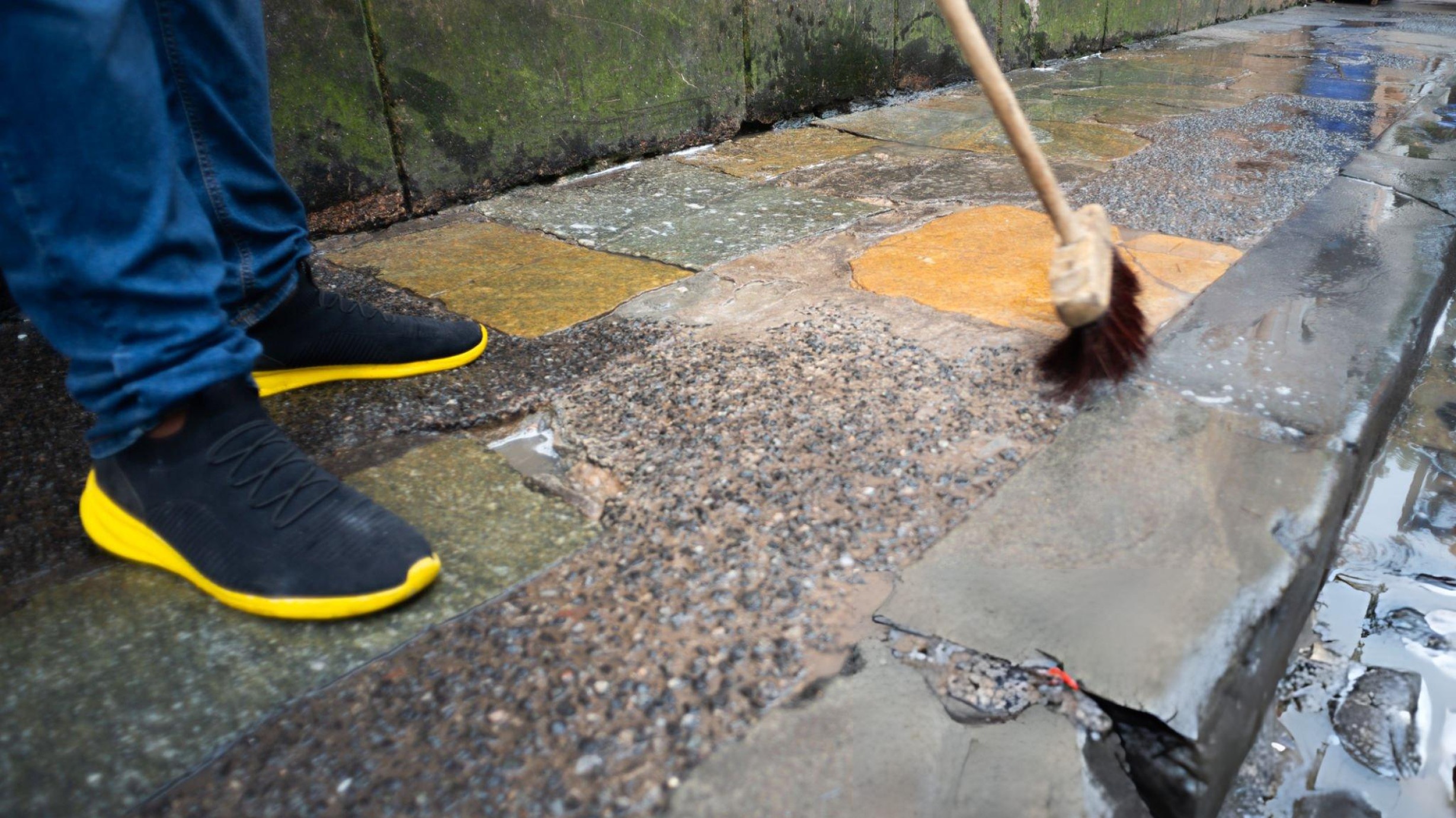A range hood serves as a crucial component in maintaining a clean and healthy kitchen environment.
Equipped with vent hood filters, it works to trap grease, smoke, and other particles produced during cooking. Regular cleaning of vent hood filters is necessary to ensure optimal performance and prevent potential issues.
Over time, these vent hood filters can become clogged with grease, which negatively impacts the air quality in your kitchen. As a result, it is essential to clean them on a consistent basis to promote proper circulation and eliminate lingering odors.
Aside from air quality concerns, regular cleaning of vent hood filters also plays a critical role in kitchen safety. Grease build-up presents a considerable fire hazard, making it vital to address any potential risks by prioritizing filter maintenance. A clean vent hood filter contributes significantly to a safer and more comfortable cooking experience for all.

Vent Hood Filters
目录
ToggleImportance of Regular Vent Hood Filter Cleaning
Regular cleaning of vent hood filters is essential to maintain a safe and efficient kitchen environment. By performing routine maintenance, you can improve indoor air quality, enhance the performance of your exhaust system, and reduce potential fire hazards.
One main reason to clean vent hood filters regularly is to prevent grease buildup and debris accumulation. Grease and dirt can easily clog filters, affecting the overall performance of your ventilation system and causing an increased risk of fire hazards. A clean filter ensures proper airflow and helps extend the lifespan of your vent hood.
Apart from maintaining the efficiency of your exhaust system, another reason to clean vent hood filters is to improve indoor air quality. A clean filter can effectively remove smoke, steam, and cooking odors from your kitchen. This not only keeps the air fresh for you and your guests but also prevents harmful particles and allergens from affecting your health.
Regular vent hood filter cleaning can also save on energy costs. When filters are clogged with grease and debris, your ventilation system has to work harder to maintain proper airflow. This unnecessary strain can lead to higher electricity consumption and increase your energy bills. By keeping the filters clean, you ensure that your system runs efficiently and consumes less power.
In conclusion, cleaning vent hood filters on a regular basis is vital for maintaining a safe and efficient kitchen environment. Through proper maintenance, you can enhance your ventilation system’s performance, improve air quality, reduce fire hazards, and save on energy costs.
Health and Safety Concerns
Regular cleaning of vent hood filters is essential for maintaining the effectiveness of the exhaust system and preventing fire hazards. When grease and other particles accumulate in the filters, they can cause the ventilation system to work less efficiently, leading to poor indoor air quality. Furthermore, excessive grease buildup may pose a fire risk, as it can ignite when exposed to high temperatures during cooking.
By cleaning vent hood filters regularly, you can improve the indoor air quality and minimize the risk of fire in your kitchen.
Proper maintenance of vent hood filters also extends the life of the vent hood itself. Dirty filters can put additional strain on the ventilation system, potentially causing it to fail prematurely. Keeping the filters clean ensures that the vent hood operates at peak efficiency, preventing costly repairs or replacements.
In addition to the safety benefits, maintaining clean vent hood filters can have a positive impact on your cooking experience. A properly functioning exhaust system will more effectively remove smoke, odors, and fumes from the air, making your kitchen a more pleasant and comfortable space to work in.
To keep your vent hood filters in optimal condition, it is advisable to clean them with warm soapy water and a soft cloth or to wash them in the dishwasher, as suggested by Bosch. Be sure to let the filters dry thoroughly before reinserting them into the ventilation hood. By taking these simple steps, you can ensure the safety and efficiency of your kitchen’s ventilation system.
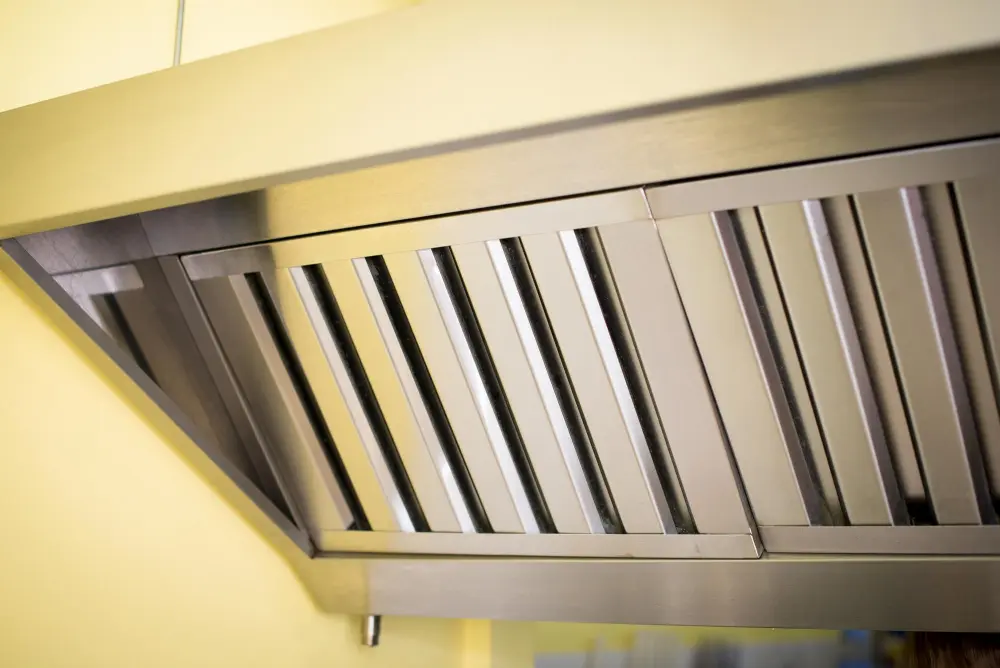
Vent Hood Filters
Performance and Efficiency
Regular cleaning of vent hood filters is essential for maintaining the performance and efficiency of your exhaust system. Grease buildup can compromise the effectiveness of the vent hood, leading to poor air circulation and a less efficient removal of contaminants from the kitchen environment.
One of the main functions of a vent hood is to remove heat, smoke, and odors from the cooking area. Clean vent hood filters allow for better airflow, ensuring that these contaminants do not linger indoors and create an uncomfortable atmosphere for staff and customers. Furthermore, a well-maintained vent hood system can also contribute to improved indoor air quality.
Aside from enhancing performance, keeping vent hood filters clean can also extend the lifespan of the vent hood itself. Regular maintenance helps prevent the need for costly repairs or replacements due to excessive wear caused by grease buildup. Additionally, clean filters reduce the strain on the exhaust fan motor, improving its overall efficiency and prolonging its life.
Finally, cleaning vent hood filters on a regular basis helps reduce the risk of fire hazards. Grease buildup in the filters can become highly combustible, posing a significant danger in a busy kitchen. By routinely cleaning the filters, you can minimize the likelihood of grease fires and maintain a safe environment in your establishment.
Maintenance and Durability
Regular cleaning of vent hood filters is essential for several reasons. Firstly, it helps maintain the effectiveness of the exhaust system by removing contaminants and improving indoor air quality.
Unmaintained filters can compromise the performance of the vent hood, leading to potential safety risks and affecting the overall air quality in your kitchen.
Additionally, cleaning vent hood filters reduces the risk of fire hazards. Grease buildup on the filters becomes combustible, posing a significant fire hazard to your kitchen. Regular maintenance helps to prevent such dangerous situations.
Maintaining your vent hood filters not only keeps your kitchen safe but also extends the lifespan of your vent hood system. A clean filter enables better airflow, protecting the motor and other components from unnecessary strain and wear.
To keep your vent hood working efficiently, it is recommended to clean the filters every two to three months, depending on your cooking practices. This routine maintenance ensures a cleaner, safer, and more efficient kitchen environment.
Cost-Effectiveness
Proper maintenance of vent hood filters is crucial for its cost-effectiveness. Cleaning vent hood filters regularly ensures the exhaust system stays efficient, helping one save on energy costs. When filters are left unclean, grease buildup may obstruct airflow, causing the motor to work harder and consume more energy.
Furthermore, grease buildup increases the risk of fire hazards, leading to potential expensive repairs or replacements. Clean filters reduce fire risks and help maintain a safe kitchen environment.
Regular cleaning also extends the lifespan of the vent hood, meaning less frequent replacements, which saves on long-term costs. Lastly, improved indoor air quality contributes to a healthier work environment for staff, leading to increased productivity and fewer sick days.
By maintaining clean vent hood filters, one can save on energy, avoid costly repairs, and ensure their kitchen remains efficient and safe.
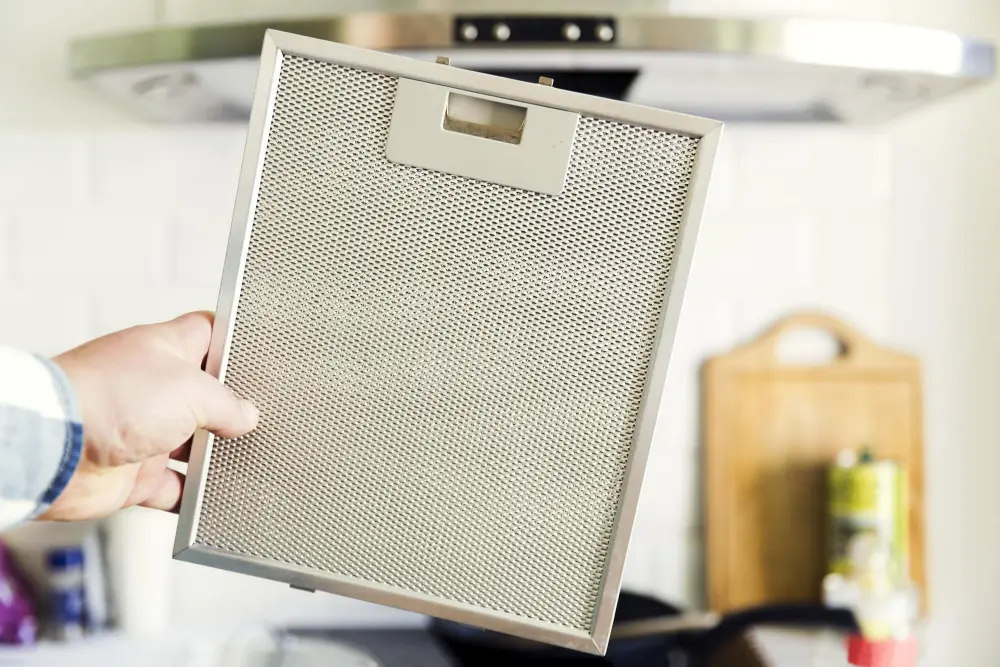
Vent Hood Filters
Environmental Impact
Cleaning vent hood filters on a regular basis has a significant impact on the environment. The primary function of vent hood filters is to trap grease, smoke, and other particles produced during cooking. By doing so, they help in maintaining indoor air quality.
When filters are not cleaned regularly, they become clogged and lose their efficiency. This inefficiency results in poor air circulation, leading to an increase in indoor air pollution. Indoor air pollution can have detrimental effects on human health, including respiratory issues, headaches, and allergies.
Moreover, a properly functioning exhaust system contributes to energy efficiency. A clean vent hood filter ensures optimal airflow, reducing the strain on the exhaust fan and thereby consuming less energy.
Conversely, a clogged filter forces the exhaust fan to work harder, consuming more energy and increasing greenhouse gas emissions.
Furthermore, regular cleaning of vent hood filters helps prevent the risk of fire hazards. Accumulated grease and debris in the filters can ignite, causing a fire that could have a devastating impact on both property and the environment.
In summary, the regular cleaning of vent hood filters is essential not only for maintaining indoor air quality, but also for reducing energy consumption, preventing fire hazards, and ultimately, mitigating the negative impacts on the environment.
Harmful Effects of Neglecting Regular Cleaning
Cleaning vent hood filters regularly is essential for maintaining a healthy environment in your kitchen and home. Neglecting this task can lead to several problems.
Firstly, a buildup of grease and dirt in the vent hood filters can significantly reduce their efficiency in capturing airborne contaminants. As a result, your indoor air quality may deteriorate, increasing the risk of respiratory issues for you and your family. The EPA explains that pollutants from both outdoor and indoor sources can collectively contribute to poor indoor air quality.
Additionally, excessive grease accumulation in the filters can be a fire hazard. A dirty vent hood increases the likelihood of a kitchen fire, as the buildup of grease provides fuel for flames. Regular cleaning helps to minimize this risk.
Lastly, a dirty vent hood can attract pests such as insects and rodents, which can spread diseases and contaminate your food. Maintaining clean vent hood filters helps deter these unwanted intruders.
In summary, regular cleaning of vent hood filters is crucial for maintaining a safe and healthy environment in your home. It not only helps maintain efficiency and proper functionality but also reduces the risk of fires, pest infestations, and poor indoor air quality.
Professional Cleaning vs DIY
Regular maintenance of vent hood filters ensures the exhaust system’s efficiency, prevents fire hazards, improves indoor air quality, and extends the vent hood’s lifespan. The decision between professional cleaning and a do-it-yourself (DIY) approach can vary depending on individual preferences and circumstances.
Professional Cleaning
Hiring a professional service offers numerous benefits. First and foremost, professionals have the necessary tools and expertise to clean the filters effectively, ensuring thorough removal of grease and debris. Furthermore, depending on the provider, some services may inspect and maintain other components of the exhaust system, thus providing a comprehensive cleaning experience. Lastly, professional cleaning saves time and effort, as homeowners can focus on other tasks while the experts handle the filter cleaning.
DIY Cleaning
On the other hand, cleaning vent hood filters at home is possible with a few simple steps and tools. First, remove the filters from the hood, which are usually located on the underside. Once removed, soak the filters in hot, soapy water for 10-15 minutes. Use a cleaning brush to scrub off the debris, and rinse with water. Ensure the filters are dry before reinstalling them in the hood. Following these steps regularly helps maintain filter cleanliness and overall system performance. DIY cleaning can save money over time and allows homeowners to control and schedule maintenance based on their convenience.
In conclusion, the choice between professional cleaning and the DIY approach depends on factors such as budget, time, and personal preferences. Both options can effectively clean vent hood filters when performed regularly, ensuring a safe, efficient, and well-ventilated kitchen environment.
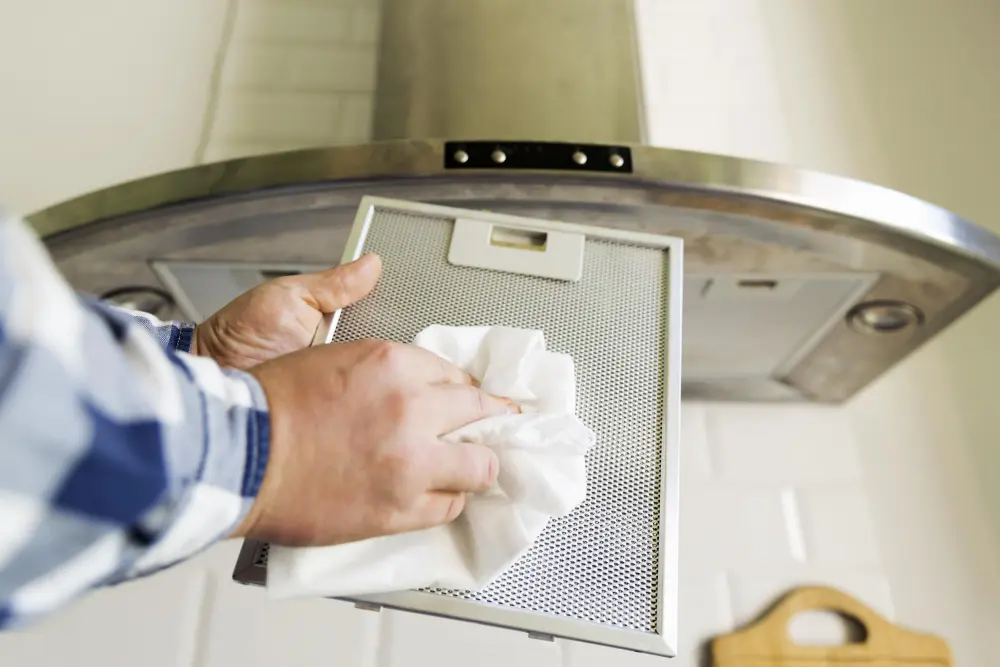
Vent Hood Filters
How Often to Clean Vent Hood Filters
Regular maintenance of vent hood filters is essential for a clean and efficient kitchen. Depending on the frequency of cooking and the types of dishes prepared, the ideal cleaning schedule may vary.
For average home cooks, cleaning the range hood filter once a month is a good rule of thumb. This ensures the removal of accumulated grease and grime, allowing the exhaust system to function effectively.
In commercial kitchens or high-traffic home cooking areas, a more frequent cleaning schedule is advisable. In such situations, checking and cleaning filters every two weeks ensures optimal performance and maintains a healthy cooking environment.
Using a variety of formatting options such as tables, bullet points, and bold text can help convey information in a concise and visually appealing manner. For example:
Vent Hood Filter Cleaning Frequency
● Average home cooks: Once a month
● Busy home kitchens or commercial establishments: Every two weeks
Following these guidelines and staying consistent with maintenance helps to prevent the buildup of grease, which can pose a fire risk or cause unpleasant odors in the kitchen. Remember, a well-maintained vent hood filter contributes to a safer and more enjoyable cooking experience.
Get more information about cleaning supplies from Jesun!

